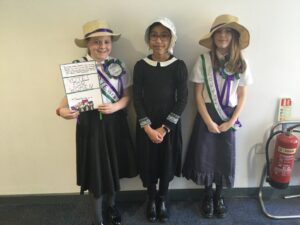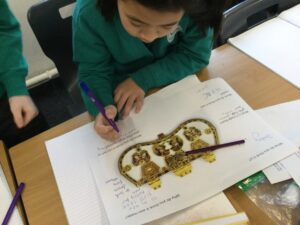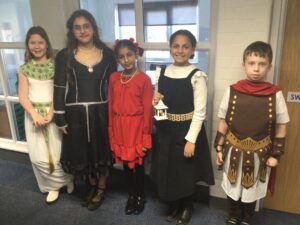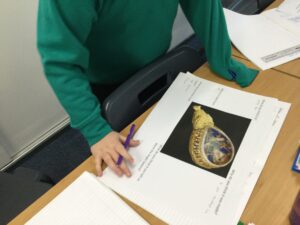History
History at Broadheath Primary School
“You have to know the past to understand the present”
Carl Sagan
Our intent in History
As in every subject, children have the growth mindset that they need to Believe, Practise, Succeed. We are not afraid of making mistakes, as the children know that’s how we learn. We use adaptive practice to ensure that our history curriculum is accessible to all, sparking wonder and fascination in how our modern world has been shaped through time.
In order to become historians, children at Broadheath initially build up their awareness of history through looking at changes within living memory, and then at events beyond living memory, such as The Great Fire of London and the achievements of nurses, such as Mary Seacole, Florence Nightingale and Edith Cavell.
In KS2, children work chronologically to deepen their knowledge and understanding of the past, from the Stone Age in Year 3 to Wars through Time in Year 6.
How we Implement our History curriculum
As they build their knowledge of this content, they are learning and remembering more about different places and periods in the past. This is progress. There are some kinds of knowledge which are particularly powerful for helping pupils to make sense of new content in history.
Substantive knowledge is the ‘stuff’ (or substance) of history. It is history content, like what happened in the Viking attack on Lindisfarne. This is divided into three main parts: knowledge of the topic/period; substantive concepts such as empire, invasion etc; and chronological knowledge.
Disciplinary knowledge is knowledge of how historians find out about the past, and how they shape their arguments. This involves six main skills: cause and consequence, change and continuity, historical significance, similarity and difference, sources and evidence and how historians interpret sources to construct their accounts of the past.
The Impact of our History curriculum
As historians, our children will be able to:
- Talk confidently about significant events, people and periods in the past.
- Have an overarching sense of chronology and where different periods fit within this.
- To recall their learning through substantive concepts such as rulers, invasions and trade.
- To understand how historians work.
Cultural Capital
Children will learn about key figures and events in the past, and we strive to give children opportunities to go to museums, have visitors in and to understand how people lived in the past.
Here are some examples of experiences children at Broadheath have had:
- A visit from a nurse
- A trip to Chester to see how the Romans lived in our local area
- Anglo Saxon and Viking visitors




